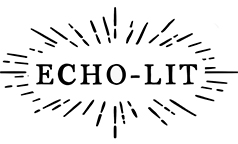Posted by Sarah Stevenson on 6th Jul 2019
Genre Talks: The Power of Young Adult Literature
Imagine you're thirteen, possibly anxious, angsty, or just overall bored, and you find yourself looking for an escape from the transitions of adolescence. For many bibliophiles, the library or book fair offers an exciting detour from reality. Some people reach for the classics like The Great Gatsby or The Scarlet Letter, and some reach for modern YA alternatives such as the Twilight series or Go Ask Alice. Either way, everybody is reading something, so why do parts of society look down upon YA literature? Despite the repetitive plots and high drama, YA serves an important role in a youngster`s development. Here are a few reasons why we should drop the stigma attached with YA literature and just let people read.

Image by StockSnap from Pixabay
1. YA encourages people to READ!
From Dr. Seuss to The Odyssey, all of these books require one to READ. Practice makes perfect, so without children's books and classics alike, we would not read as well as we do. A personal preference is just that: a personal preference. As long as the written word enters our mind in a literary form that keeps literature alive, it deserves common respect. Plus, if someone finds a genre fun to read, then they are allowed to have fun!

Image by Michal Jarmoluk from Pixabay
2. Amazing, well-developed YA books exist with a strong sense of prose, style, and theme, and they utilize literary devices such as symbolism, allusion, motif, and more.
Despite popular belief, an entertaining book about teenager problems does not inherently lack in literary merit. A wealth of research in critical theory, rhetoric, and form exist based on "second class" mediums such as film, Young Adult fiction, children's literature, and more. Possibly the negative stigma stems from a popular belief that adolescent instability equates to poorly written stories and prose. Would we question the literary merit of Romeo and Juliet just because it contains teenage characters with teenage problems? No. Then give the genre its due respect and try to understand that as in every field, there are poor executors of prose, highly talented executors of prose. and authors in between.

Image by Sasin Tipchai from Pixabay
3. YA creates a safe space for the exploration of adolescent health concerns.
Young Adult fiction often covers a variety of existential, inquisitive, and often taboo subjects such as sexuality, mental health, social stress, substance abuse, and trauma. Not to say that every YA book takes a dark turn, nor is it everyone's cup of tea in the genre. However, the genre itself provides an outlet for adolescents. YA creates a safe space to explore, process, and legitimize health concerns of the vulnerable, younger populations. The genre attempts to explain and redefine social constructs that lead to vulnerabilities in this age group, and this in turn gives knowledge and power to maturing adolescents as they reach adulthood.

4. Even if a novel is not well-developed in form and style, it is a cultural reflection that helps us understand ourselves.
For instance, I used my university`s library engine to find a wealth of scholarly research on Stephanie Meyer`s Twilight. A novel such as Twilight provides opportunity for a cultural dissection of the behavior, attitudes, and beliefs of a particular place in time. Meyer`s novel is not well known for a perfect use of literary tools, however, the book remains a catalyst for a particular message or story. Researchers utilize the meaning and message of a novel to add to the greater discussion of literature, whether the novel be objectively "good" or "bad." Sexism, racism, class debates, and more exist even in the classics. How society dissects and learn from such literature creates an important tool of education.
“Any book that helps a child to form a habit of reading, to make reading one of his deep and continuing needs, is good for him.”
- Dr. Maya Angelou


